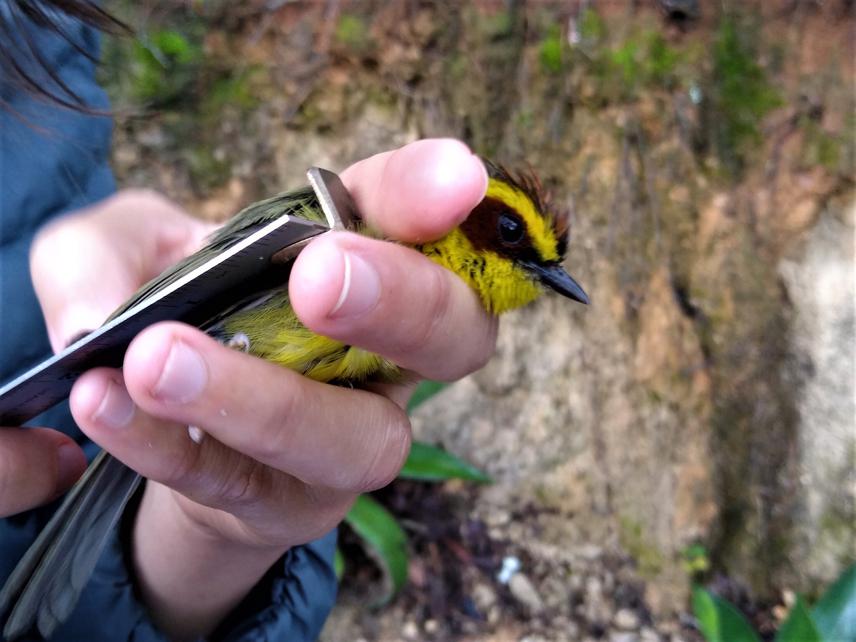Jessica Thompson Ambriz
The Chiapas Highlands is a tropical mountainous region located in the central part of Chiapas state in southern Mexico. This region has experienced one of the highest rates of deforestation on a global scale and most of the forest fragments that remains suffer chronic disturbances caused by selective logging and fuelwood extraction. For several decades, the effects of human activities on the floristic communities of Chiapas Highlands have been documented. However, very little is known about the consequences of forest loss and impoverishment on the response of other taxonomic groups, such as birds.

Measuring wing length from a Golden-browed Warbler (Basileuterus belli) for functional diversity analysis. © Diego Manzano Méndez.
Birds are an extremely important component of forests as they perform diverse ecological functions such as pollination, seed dispersal, regulation of prey populations, and nutrient recycling. The contribution of each species to the ecosystem functioning relies on its traits and interactions, and in turn species persistence is conditioned by traits that confer them survival advantages. Understanding the effects of landscape and forest changes on bird diversity is critical for bird conservation and ecosystem health.
Through our project we will explore the responses of bird taxonomic and functional diversity to forest loss, fragmentation, and disturbance with the aim to provide insights about how landscape and forest management can be oriented to maintain bird diversity on Chiapas Highlands region. This information will be the basic input for conservation workshops and educational materials that we will socialize with students and local stakeholders.
We plan to develop workshops that allows students and local authorities that managed communal reserves to recognize the contribution of bird diversity over their livelihoods through an approach based on functional ecology. We believe that by understanding the value of biodiversity, they can develop an interest in nature conservation that can lead to the adoption of more sustainable and biodiversity friendly management practices on a nearby future.